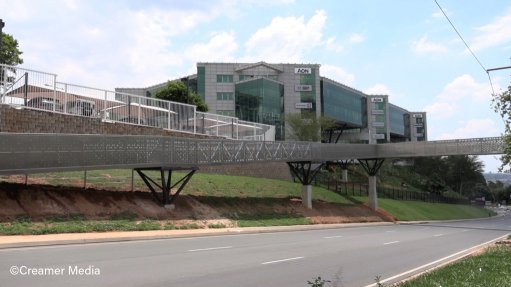Solar tax breaks offer a little, but not enough light
This article has been supplied.
By Nato Oosthuizen – Partner and Renewable Energy Expert at BDO
In the wake of the worst round of load shedding we’ve ever had, Finance Minister Enoch Godongwana tabled the national budget which included tax measures to counter the crisis. Oosthuizen discusses why these tax incentives won’t enable what they set out to achieve.
South Africa is experiencing a residential solar installation boom. In the first half of last year alone, households imported more than R2.2 billion worth of solar photovoltaic (PV) panels, and estimations are that this will more than surpass what the government itself has been able to procure in solar energy over the last decade once installed.
Take that in: in the past six months, average South Africans have procured, and are in the process of installing, more solar photovoltaic capacity than the government has done in 10 years of attempting to manage an energy emergency.
These numbers are staggering and bode well for the future of residential solar to lighten the load on the national grid. But a crucial caveat blocking the solar at the end of the tunnel is the limited tax incentives for private solar solutions.
Enter the 2023 Budget.
In his speech, Minister Godongwana announced a rebate for private households, comprising 25% of the cost of rooftop solar panels, up to a maximum of R15,000, as of 1 March 2023. However this incentive, which will help reduce individual’s tax liability, is only available for a year.
So, for the next 12 months we can expect a rush on solar installation. But will supply match demand? And among those suppliers, how many are black empowerment entrepreneurs? The answer to both of these questions is ‘not enough’.
Instead, if the tax allowance was extended we would have more time to expand the industry, and grow the market so that supply could meet demand. And the knock-on effects will be beneficial for the government in the long run. Let me explain why.
There is, understandably, hesitation that tax incentives can be a slippery slope. But should we extend them by several years, and if they are regulated correctly the economic ripple effects have the potential to transform the country’s future financial outlook.
Take the case for investment. At present our demand outstrips supply, meaning there is an untapped opportunity for small scale investment into communities where solar installation solves the energy crisis for those who can’t afford to invest, with the investor reaping the reward of the deduction. This is economics 101, and on a larger scale, attraction for international investors will become more alluring with a much wider pool.
This would all be possible if the market had more time to mature, which would allow for more suppliers to start installing solar. This is an area that could also do with further thought around tax incentives, perhaps introducing a different structure that allows for this form of industry development.
Going forward, residential solar development could become a major catalyst for the growth of entrepreneurs and small businesses. This would drive meaningful empowerment and skills development as more qualified electricians receive the necessary training to become compliant, while also improving our capacity for solar rooftop development across the country. It would also help incentivise the production and manufacturing of renewable energy associated equipment. A circular economy of supply and demand will only increase as more and more end users make the move towards renewable options which would put local manufacturers in a much more favourable financial position.
A year is also not long enough for many households to afford solar installation. Consider the fact that for the average household, the installation of a basic solar inverter and battery system will cost in the region of R60,000 - 100,000. For a lot of people, this is not the sort of disposable cash they have lying around, which is why a longer tax incentive window would assist more households to invest in solar.
Extending the residential tax incentive certainly seems like a win-win situation across the board. Yet it will require a mind shift from key stakeholders such as SARS and local municipalities. These initial losses may seem extreme, but we must realise that to navigate the energy crisis we can no longer afford to sacrifice long-term gains for short-term wins.
Ultimately, the energy crisis should be seen as a challenge that presents an opportunity for the government. By creating the right policy landscape, the government can help turn a bad situation into a success story, like they have done by laying the groundwork for the Renewable Independent Power Producer Programme (REIPPP). In the same way, setting the right incentives in place today can help guarantee the effective and secured development of South Africa’s residential solar industry tomorrow.
Article Enquiry
Email Article
Save Article
Feedback
To advertise email advertising@creamermedia.co.za or click here
Comments
Announcements
What's On
Subscribe to improve your user experience...
Option 1 (equivalent of R125 a month):
Receive a weekly copy of Creamer Media's Engineering News & Mining Weekly magazine
(print copy for those in South Africa and e-magazine for those outside of South Africa)
Receive daily email newsletters
Access to full search results
Access archive of magazine back copies
Access to Projects in Progress
Access to ONE Research Report of your choice in PDF format
Option 2 (equivalent of R375 a month):
All benefits from Option 1
PLUS
Access to Creamer Media's Research Channel Africa for ALL Research Reports, in PDF format, on various industrial and mining sectors
including Electricity; Water; Energy Transition; Hydrogen; Roads, Rail and Ports; Coal; Gold; Platinum; Battery Metals; etc.
Already a subscriber?
Forgotten your password?
Receive weekly copy of Creamer Media's Engineering News & Mining Weekly magazine (print copy for those in South Africa and e-magazine for those outside of South Africa)
➕
Recieve daily email newsletters
➕
Access to full search results
➕
Access archive of magazine back copies
➕
Access to Projects in Progress
➕
Access to ONE Research Report of your choice in PDF format
RESEARCH CHANNEL AFRICA
R4500 (equivalent of R375 a month)
SUBSCRIBEAll benefits from Option 1
➕
Access to Creamer Media's Research Channel Africa for ALL Research Reports on various industrial and mining sectors, in PDF format, including on:
Electricity
➕
Water
➕
Energy Transition
➕
Hydrogen
➕
Roads, Rail and Ports
➕
Coal
➕
Gold
➕
Platinum
➕
Battery Metals
➕
etc.
Receive all benefits from Option 1 or Option 2 delivered to numerous people at your company
➕
Multiple User names and Passwords for simultaneous log-ins
➕
Intranet integration access to all in your organisation














